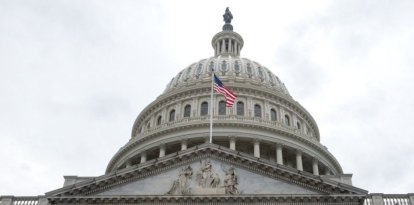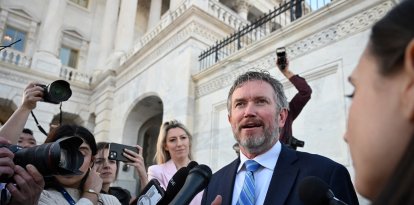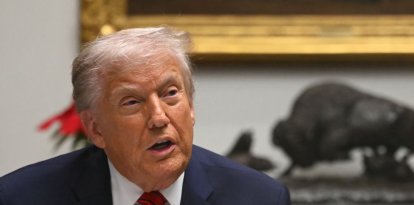JD Vance: ‘With President Trump, crypto finally has a champion and an ally in the White House’
The vice president delivered a fiery speech at the Bitcoin 2025 Conference in Las Vegas, in which he defended the Trump Administration's pro-cryptocurrency industry stance.

Vice President JD Vance
Vice President JD Vance delivered a fiery speech Wednesday at the Bitcoin 2025 Conference in Las Vegas, highlighting the pro-cryptocurrency industry stance of President Donald Trump's administration.
"I'm here today to say loud and clear, with President Trump, crypto finally has a champion and an ally in the White House," he said.
"We want our fellow Americans to know that crypto and digital assets and particularly Bitcoin, are part of the mainstream economy, and are here to stay," he added.

Economy
Trump Media Group to raise $2.5 billion in capital for cryptocurrency reserves
Virginia Martínez

Vance, who has repeatedly defended cryptocurrencies, referred in this way to the Trump administration's intentions to reduce the weight of regulations on the industry.
Likewise, Vance, who owns hundreds of thousands of dollars in bitcoins, jokingly stated that he was not saying that "to juice my own memecoins (a cryptocurrency inspired by a meme, joke or Internet trend)."
"Crypto is a hedge against bad policymaking from Washington, no matter what party's in control," the vice president said. He added: "It's a hedge against skyrocketing inflation, which has eroded the real savings rates of Americans over the last four years. And as you all know well, it's a hedge against a private sector that's increasingly willing to discriminate against consumers on the basis of their basic beliefs, including their politics."
JD Vance Called for Passage of GENIUS Act
Vance also spoke out on the GENIUS Act, which seeks to establish a regulatory framework for stablecoins, cryptocurrencies whose price is tied to an asset, usually the U.S. dollar.
The vice president called on Congress to pass the bill. "In this administration, we do not think that stablecoin's threatened the integrity of the United States dollar, quite the opposite." And he remarked, "In fact, we view them as a force multiplier of our economic might."
🇺🇸 VP JD VANCE SAYS #BITCOIN IS PART OF THE MAINSTREAM ECONOMY AND IS HERE TO STAY 🚀 pic.twitter.com/uzKHBeYFJb
— The Bitcoin Conference (@TheBitcoinConf) May 28, 2025
JD Vance urged cryptocurrency enthusiasts to get involved in politics
"Unless you guys get involved in politics, politics is going to ignore this industry," Vance warned.
"What happens in the world of politics, what happens in the world of bureaucracy, it will affect even the most transformational and valuable technologies if we don't make the right decisions. So the first piece of advice, the first thing that I'd ask you, is to take the momentum of your political involvement in 2024 and carry it forward to 2026 and beyond," he continued.
The president's two oldest sons, Donald Trump Jr. and Eric Trump, are also participating in the event. Both have invested in various ventures related to the world of cryptocurrencies.

Politics
New Hampshire becomes the first US state to establish a cryptocurrency reserve
Leandro Fleischer

Trump made history by signing the first law related to cryptocurrencies in the U.S. to remove obstacles and expand economic freedom
"The DeFi Broker Rule needlessly hindered American innovation, infringed on the privacy of everyday Americans, and was set to overwhelm the IRS with an overflow of new filings that it doesn’t have the infrastructure to handle during tax season," Carey said in a statement. "I thank President Trump for signing this important bill," he added.
The resolution, which received bipartisan support, passed the Senate on March 4 and the House a week later, culminating in a final vote in the Senate on March 26 due to its connection to budget issues. Passed under the Congressional Review Act (CRA) framework, the measure not only repeals the rule but also prohibits the IRS from issuing a similar regulation in the future without explicit congressional approval.

























